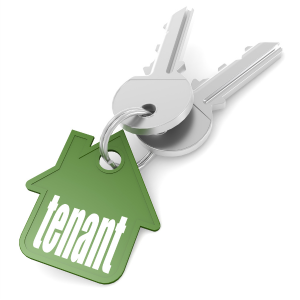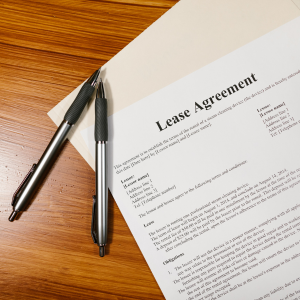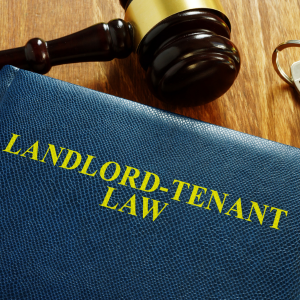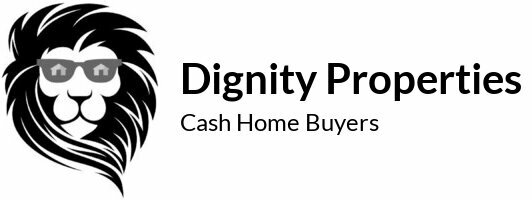
Understanding Tenant Rights When Selling a House in Chattanooga, Tn
To ensure a smooth home sale in Chattanooga, TN, it’s vital to understand tenant rights during a property transaction. Tennessee law protects renters in ways that must be followed when a landlord decides to sell. For example, tenants are generally entitled to at least 24-hour notice before property showings, unless otherwise stated in their lease.
This means it’s important to carefully read the lease terms, especially if the agreement has specific parts that deal with a sale. Most of the time, renters can stay in the house until the end of the lease or until they agree to end it early. If a new buyer wants to move in but there isn’t an early termination clause, they have to talk to the present tenant directly.
Respecting tenant rights upfront helps avoid disputes and keeps the process fair for all parties involved.
Navigating Landlord-tenant Laws During Property Sales in Tennessee
Selling a house in Chattanooga with tenants still living inside means dealing directly with Tennessee’s landlord-tenant laws, which outline responsibilities for both landlords and renters. A critical first step is providing proper notice to tenants about the upcoming sale. Typically, at least a 30-day notice is required, but the lease agreement may demand more specific terms. It’s also important to consider rules regarding tenant privacy.
Property showings in Chattanooga should be arranged with a minimum of 24 hours’ notice and held at times that are least disruptive to the tenant’s daily schedule. Offering incentives—like discounted rent or small bonuses for assisting with showings—can go a long way in earning tenant cooperation. By staying compliant with local laws and fostering open, respectful communication, landlords can avoid unnecessary legal complications and move toward a smoother sale. Dignity Properties is here to guide you through this process, making sure everything stays on track from start to finish.
How to Legally Sell Your Rental Property with Tenants in Place
Selling your Chattanooga rental property while renters are still living there means balancing legal duties with polite conversations. Before you do anything else, look over your lease agreements to see if there are any terms that cover selling the property. When letting tenants know that you want to sell your home, Tennessee law sets specific notice times that must be followed to avoid future disputes.
Establishing clear communication early in the process helps tenants understand your goals and can even motivate them to assist during showings. By offering benefits like lower rent or help with moving, you can often get people to work together. Talking to a lawyer might also be a good idea to make sure that all the paperwork is done right, including any changes to the lease.
Keeping things transparent not only simplifies the process but also supports a better working relationship between landlord and tenant throughout the sale.
Preparing for a Smooth House Sale While Managing Tenant Expectations

As you get ready to sell your Chattanooga rental home, it’s important to keep your tenants’ standards in check. First, read the deal and make a list of your legal duties. Then, talk to your renters about the sale in a polite and honest way. This sets the tone for a cooperative relationship.
Being honest about how the changes might affect their living situation can clear up any confusion and build trust. Tenants may be more willing to work with you if you offer something in return, like lower rent during the sales time. All requests to show should be reasonable, and you should give them enough warning and try to work around their schedule as much as possible. This helps protect the privacy and cooperation of the tenants.
It’s easier to get the property to a good closing if you’re honest and caring.
Key Steps to Selling an Occupied Home in the Chattanooga Real Estate Market
Selling a tenant-occupied home in Chattanooga takes more than just listing the property—it starts with understanding your legal responsibilities. Check the lease and Tennessee’s rules about how long you have to give notice and how tenants are protected. It is important for landlords to know how to sell their properties so that tenants’ rights are protected.
Once the legal groundwork is in place, the next step is open communication. Don’t wait to tell your renters what’s going on and how it will affect them. Do it often. People will be more likely to keep the property clean and ready for showings if they are offered benefits like lower rent or help with moving costs. The process will go more smoothly and with more respect if you respect their privacy and plan schedules around their availability.
Communication Strategies for Informing Tenants About a Pending Home Sale
Clear and early communication is the foundation for a smooth home sale when tenants are involved. Tell your renters right away—either in person or in writing—that you want to sell your home. Being honest at the start shows respect and helps build trust, especially if renters feel surprised or unsure about how their living situation might change. A calm, clear explanation of the process can ease a lot of anxiety right away.
During the conversation, outline how you plan to handle showings and what the timeline might look like. Explain exactly what you expect, like how long they have to prepare for visits and what they need to do to keep the house ready for buyers. Giving written reports along the way, either by email or on paper, makes sure that everyone’s understanding is maintained. From listing to closing, renters are much more likely to cooperate if they feel valued and included.
Exploring Cash for Keys: Incentives for Tenants to Vacate Before a Sale
Giving someone “cash for keys” may help you sell your house even if there are renters living there. Giving tenants money in return for their agreement to leave on their own before the property is listed or sold is an example of this. When done with care, it’s a win-win situation for everyone: the tenants get paid, and you can sell an empty house that’s easier to prepare, show, and close on.
This approach is especially effective if your buyer intends to move in themselves or if you’re aiming to appeal to homeowners who prefer not to inherit a tenant lease. Be sure to put your offer in writing with clearly defined terms, including a move-out date and compensation details. Open communication is key—treat it as a mutual agreement to avoid conflict and keep things out of court. In Chattanooga’s fast-paced real estate market, this approach can help you sell your house fast in Chattanooga and set your listing apart from the competition.
The Impact of Lease Agreements on Selling Your Chattanooga Investment Property

Lease agreements play a major role in how—and when—you can sell a property that’s currently rented. Yes, whether you have a fixed-term lease or a month-to-month agreement in Chattanooga, you have to follow the rules of your lease. Tenants with fixed-term leases usually have the right to stay until the end of the term. This could make buyers less interested, especially those who want to move in right away.
Month-to-month leases, on the other hand, give you more freedom, but you still need to give writing notice to vacate. Some investors might be willing to buy a property that already has renters, especially if the lease terms are good and the property is renting quickly.It’s important to be honest with renters about how the sale might affect where they live in both situations. Simply being clear about what you need to do according to the lease will help keep things from getting complicated and safeguard everyone’s rights during the sale.
Evaluating the Pros and Cons of Selling a Tenant-occupied Property
In Chattanooga, selling a home that is rented out can be both a chance and a challenge. One good thing about having renters already in place is that you can start making rental income right away, which can be very appealing to investors. It also shows that the property can be rented out and is in high demand, which gives potential buyers faith in its ability to make money. These things can help your property stand out from others in the market and attract buyers who want to invest in assets that can make them money.
However, there are downsides to consider. Not all buyers want to take on tenants, especially if they’re planning to live in the home. Coordinating showings around a tenant’s schedule, and making sure the property stays in good shape during that time, can be difficult. You’ll also need to follow legal procedures closely to avoid violating tenant rights. Balancing these pros and cons will help you decide the best strategy—whether it’s selling to another investor or offering incentives to vacate before the sale.
Marketing Techniques for Selling Homes with Current Tenants in Chattanooga, Tn
When marketing a rental home, you need to take a different method than when listing an empty home. First, make sure the place looks nice with your neighbors’ help. A helpful tenant can make a big difference in how clean the property is, how easy it is to show, and how the buyer feels generally. So that everything stays on track, you might want to offer a small reward in return, like a lower rent payment or a gift card.
Since access may be limited, lean into virtual tools like professional photography, 3D walkthroughs, and online listings to give buyers a strong first impression without constant in-person visits. Write down the lease terms, the current rent amount, and the background of renters to show that the property is a good investment as well as a home. You can get owners who see value in keeping the tenant instead of trying to find a new one by focusing on the property’s income potential.
Legal Considerations When Listing a Rented Home on the Market
Listing a rented property in Chattanooga comes with legal responsibilities that can’t be ignored. Before anything else, you need to review the existing lease agreement to understand the terms you’re legally bound to uphold. Tennessee law requires that landlords honor lease conditions—even during a sale—so your buyer may need to accept the tenant as part of the deal unless a separate arrangement is made.
Respect for tenant privacy is also a legal must. Any inspections or showings should be scheduled at acceptable times and with enough notice, usually 24 hours in advance. You should also look into any local laws that might affect how the sale is carried out. If your buyer wants the house to be empty, you may need to talk to the tenants about moving out early. Talking to an attorney in the area will make sure you follow the law and reduce your risk during this change.
How Rent Control Policies Affect the Sale of Rental Properties in Tennessee
Even though Tennessee doesn’t have rent control on a state level, places like Chattanooga still have rules that landlords must follow when they want to sell rental properties. Most of the time, these rules affect how much notice is needed and how lease deals are handled. This is especially true when a new owner wants to move in or raise rent after buying the property.
For those who want to sell a rental home, it’s important to know how these rules might affect your timeline. Renters should usually be able to stay until the end of the lease, unless both parties agree to something different. This can be a problem for buyers who want to move in right away. Long-term renters and stable rent may be good for investors, though. Knowing about state and local tenant protections can help you get ready for buyer complaints and make sure the sale goes through quickly.
Timing Your Home Sale: Best Practices for Landlords with Active Leases
Timing is everything when you’re trying to sell a tenant-occupied property. If your tenants are under a fixed-term lease, it’s usually best to time the sale close to the lease’s expiration. This minimizes disruption for the tenant and increases your chances of appealing to buyers who want to move in. However, if your lease is month-to-month, you’ll have more flexibility—but still must provide proper written notice, typically 30 days.
Good communication helps avoid surprises. Let your tenants know your plans early and keep them updated throughout. You might consider negotiating an early lease termination if it makes sense for both sides. Timing your sale in line with local market trends also increases your chances of getting a strong offer. The goal is to find the sweet spot that honors tenant rights while meeting your goals as a property owner in Chattanooga.
Financial Implications of Selling a Rental Property Before Lease Expiration
If you sell a Chattanooga rental home before the lease is up, you might end up with extra money. If your renter has a fixed-term lease, you might have to pay fines or even legal fees if you try to get them to leave early. In some situations, you may have to pay the renter back or cover their moving costs, which will take money away from your profits.
Another factor is buyer interest. People who live in the home themselves usually like it when it’s empty, so keeping the renter may mean that only investors can see it. However, keeping the rental income while you sell it could help cover some of your costs, especially if the buyer plans to keep renting it out. You should also think about the tax effects, like capital gains and depreciation recovery. A financial advisor or a local tax expert can help you figure out what your choices are, get the best return possible, and follow the law.
Understanding Eviction Processes and Their Role in Facilitating Home Sales
Understanding the eviction process is crucial for anyone looking to sell a house with tenants in Chattanooga, TN. Familiarizing yourself with Tennessee’s landlord-tenant laws can help streamline the home selling process and mitigate potential conflicts.
For landlords in Chattanooga to start the eviction process, usually because of breaking the lease or not paying rent, they have to give the tenant enough time to respond. There are legal requirements that must be followed, and delays are not required. Talking to a local real estate attorney is recommended.
The eviction process involves several steps, including filing an eviction lawsuit and obtaining a judgment from the court, which can take time depending on the circumstances. Working collaboratively with tenants by offering relocation assistance or providing ample notice may facilitate a smoother transition and enhance your property’s marketability.
Not only does knowing these steps help you deal with complicated legal issues, but they also make your property more appealing to potential buyers who might be worried about problems with the tenants during the sale process.
Staging Tips for Showing Homes That Are Currently Rented Out
When selling a house in Chattanooga, TN that is currently rented out, staging plays a crucial role in appealing to potential buyers. Start by working collaboratively with your tenants to ensure the home is clean and decluttered, as this highlights the property’s best features.
You might want to get rid of personal things so that buyers can picture themselves living there. Increasing the lighting in a room is important because it makes the space feel warmer and bigger.
Using strategically placed furniture can showcase the ample space available while maintaining a cozy atmosphere. Pay special attention to curb appeal by keeping the lawn well-maintained and adding seasonal plants or flowers for an inviting first impression.
Also, draw attention to any unique features of the home that might make it appealing to buyers, like building details or views of the area that are common in Chattanooga homes. By arranging a home well while it is still rented out, sellers can get more buyers interested, speed up the sale process, and protect the privacy and comfort of the tenants.
Investor Insights: Attracting Buyers Interested in Income-producing Properties
When selling a house with tenants in Chattanooga, TN, it’s crucial to attract buyers interested in income-producing properties by highlighting the potential for steady rental income and investment growth. Emphasize the benefits of Chattanooga’s thriving real estate market, where demand for rental properties remains strong due to the city’s growing economy and population.
To show that the property has a stable cash flow, show specific financials like current rental agreements, payment history, and occupancy rates. Bring attention to any recent upgrades or improvements that have raised the property’s value and made it more appealing to investors who want low-maintenance properties.
You might want to give information about local property management services that can help landlords or owners from out of state make the move easily. By focusing on these things, you can successfully attract buyers who want to buy properties in Chattanooga that have a steady stream of income and the potential to go up in value over time.
Tax Considerations When Disposing of Rental Properties with Tenants
When selling a house with tenants in Chattanooga, TN, understanding the tax implications is crucial for a successful transaction. As a property owner, you must be aware of capital gains tax liabilities that arise from the sale of rental properties.
The profit from the sale, calculated as the difference between the selling price and your adjusted basis in the property, may be subject to federal capital gains taxes. Additionally, Tennessee’s lack of state income tax on wages does not exempt you from potential tax responsibilities at the federal level.
It’s also important to consider depreciation recapture, which can increase your taxable income when disposing of rental properties. To mitigate these taxes, you might explore strategies like a 1031 exchange, which allows deferral of capital gains by reinvesting proceeds into another qualifying investment property.
Consulting with a tax professional familiar with real estate transactions in Chattanooga can help navigate these complexities and ensure compliance while optimizing your financial outcome.
What Rights Do Tenants Have When Landlord Sells House in Tennessee?

When selling a house with tenants in Chattanooga, TN, it’s crucial to understand the rights tenants have under Tennessee law. In Tennessee, tenants have specific protections when a landlord decides to sell a property.
Firstly, the tenant’s lease remains valid even if ownership of the property changes hands. This means that the new owner must honor the existing lease terms until it expires.
Additionally, tenants are entitled to receive proper notice before any showing of the property; typically, this is at least 24 hours’ notice unless otherwise specified by local ordinances or the lease agreement itself. If a month-to-month rental agreement is in place, landlords must provide a 30-day written notice if they wish to end the tenancy after selling the property.
Clear and respectful communication is key for landlords in Chattanooga when selling a rental property. Keeping tenants informed and honoring their legal rights helps ensure a smoother process while building cooperation throughout the transition. Not only does this align with Tennessee law, but it also promotes goodwill that can lead to fewer complications. If you’re ready to sell, we buy houses cash in Walden and other parts of Tennessee, we can work with you and your tenants to make the sale as smooth as possible.
Is It Harder to Sell a Property with Tenants?
Selling a property with tenants in Chattanooga, TN can present unique challenges compared to selling a vacant home. One of the main difficulties is coordinating showings and inspections around the tenants’ schedules, which can limit potential buyers’ access to view the property.
Additionally, tenants may not maintain the home in ‘show-ready’ condition at all times, potentially affecting first impressions. There’s also the complexity of tenant rights and lease agreements that sellers must navigate, ensuring compliance with Tennessee’s landlord-tenant laws.
This includes providing proper notice for showings and understanding how existing leases might transfer to new owners. Furthermore, potential buyers might view occupied properties as less flexible in terms of move-in timelines.
However, selling a tenanted property isn’t impossible; it often requires strategic planning, clear communication with tenants, and possibly offering incentives to ensure cooperation. Whether you’re working through an experienced real estate professional familiar with investment properties or directly negotiating with potential buyers who are investors themselves, understanding these dynamics is key to successfully selling a house with tenants in Chattanooga.
Can I Sell My House If Someone Is Living in It?
Selling a house with tenants in Chattanooga, TN, is entirely possible and can be a strategic move when approached correctly. If you’re wondering, “Can I sell my house if someone is living in it?” the answer is yes.
However, there are important considerations to keep in mind to ensure a smooth transaction. First, review your lease agreement to understand any clauses that may affect the sale, such as rights of first refusal or lease termination conditions.
Communication with your tenants is key; inform them of your intention to sell and discuss how showings will be handled to minimize disruption. In Chattanooga’s competitive real estate market, maintaining good relations with tenants can help facilitate cooperation during open houses and inspections.
Additionally, potential buyers may find value in having a property already generating rental income, making it an attractive investment opportunity. It’s advisable to consult with a local real estate professional experienced in tenant-occupied sales who understands Chattanooga’s housing regulations and can guide you through the process efficiently while maximizing your property’s appeal on the market.
Can You Sell a House Without a Realtor in Tennessee?
Certainly! When you sell a house without a realtor, also known as For Sale By Owner (FSBO), you have the freedom to set your own price and negotiate directly with buyers.
However, selling a house with tenants in place can add complexity to the process. It’s crucial to communicate effectively with your tenants and ensure that they are informed about showings and potential disruptions.
In Chattanooga, understanding local real estate laws and regulations is essential when selling your home on your own. You must also handle all necessary paperwork correctly, from disclosure forms to purchase agreements.
Using online platforms and social media is a great way to reach a broader audience of potential buyers for your home. Skipping the traditional realtor route does require more effort, but it gives you full control over the sale and may help you avoid paying hefty commission fees. If you’re ready to take the next step, contact us today—we’re here to help you navigate the process with confidence.
Helpful Chattanooga Articles
- Maximize Your Profits: Selling a Home That Needs Repairs in Chattanooga, TN
- Expert Tips For Downsizing Your Family Home With Kids In Chattanooga, TN
- How To Successfully Sell A House With Tenants In Chattanooga, TN
- How To Utilize A Title Company For Selling Your Home In Chattanooga, TN
- Essential Paperwork For Selling Your Home By Owner In Chattanooga, TN
- How To Navigate And Sell A House With Code Violations In Chattanooga, TN
- Understanding Who Covers Appraisal And Inspection Costs In Chattanooga, TN
- Effective Strategies For Selling A Hoarder House In Chattanooga, TN
- Successfully Selling A Home With Foundation Problems in Chattanooga
- How To Sell Your Home When Behind On Mortgage Payments in Chattanooga, TN
- How To Successfully Sell Inherited House With Multiple Owners In Chattanooga, TN
- Selling My Parents House in Chattanooga, TN
- Homeowners Insurance When Selling A House in Chattanooga, TN
- How to sell an investment property in Chattanooga, TN
- Capital Gains Tax After Selling a House in Chattanooga, TN

| LEASE OR RENTAL AGREEMENT | TENANCIES | SUBLEASING | RENTERS | OPTIONS | MARKET VALUE |
| TAXED | MORTGAGE | MORTGAGE LENDING | MONEY | LEGAL COUNSEL | SECURITY DEPOSITS |
| RISK | APPRAISAL | MEDIAN HOME PRICE | HOUSING PRICES | LENDING | LOAN |
| EXPENDITURE | EXPENSES | DATA | HOMEBUYERS | TENANTS RIGHTS | FORECLOSURE |
| FINANCIAL RISK | DOWN PAYMENT | CONDOS | COMPANY | CALIFORNIA | SELL YOUR HOUSE |
